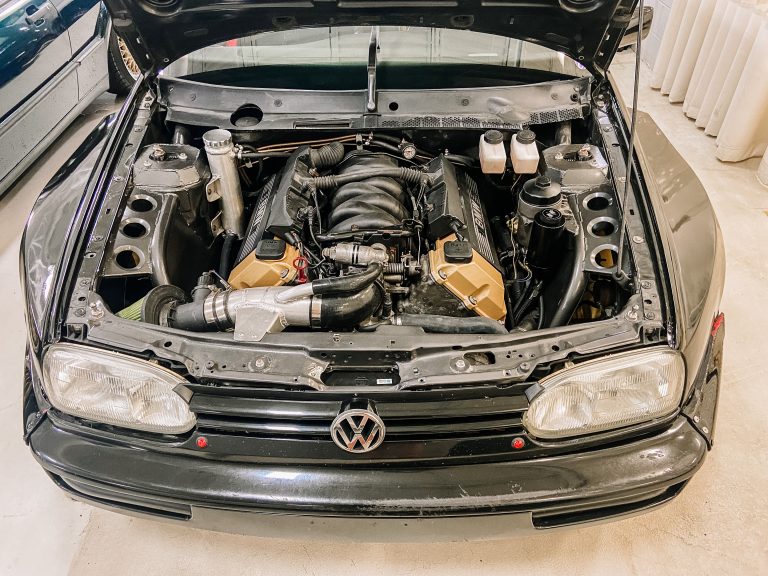The cost of maintaining a BMW or an Audi varies, but in general, both car brands are more expensive to maintain compared to others. However, Audi tends to have higher repair costs for the gearbox.
Overall, the difference in maintenance costs between the two brands is not significant enough to significantly impact your decision.
Initial Cost Comparisons
When comparing the initial cost of maintenance between BMW and Audi cars, it can be said that both brands are somewhat more expensive to maintain. However, Audi may have slightly higher costs for gearbox repairs. Despite this, the slight difference in overall costs should not be a deciding factor between the two brands.
Expenses On Repairs
When comparing the maintenance costs of BMW and Audi, it is generally found that both brands are more expensive to maintain compared to other cars. However, Audi tends to have higher repair costs for the gearbox. While there may be a slight difference in overall costs, it should not heavily impact the decision between the two brands.
Typical Repair Costs For Bmw
When it comes to repairing a BMW, you can expect to pay a bit more compared to other brands. BMWs are known for their luxury and performance, but with that comes a higher price tag for repairs. Whether it’s routine maintenance or more significant repairs, the costs can add up. Here are some typical repair costs you may encounter when owning a BMW:
- Engine repairs: $500-$1,500
- Brake system repairs: $300-$800
- Suspension repairs: $500-$1,000
- Electrical system repairs: $400-$1,000
- Gearbox repairs: $1,000-$3,000
Typical Repair Costs For Audi
Audis are also considered to be on the more expensive side when it comes to repairs. While they may not be as costly as BMWs, they still require a significant investment for maintenance and repairs. Here are some typical repair costs you may encounter when owning an Audi:
- Engine repairs: $400-$1,200
- Brake system repairs: $300-$700
- Suspension repairs: $500-$900
- Electrical system repairs: $300-$900
- Gearbox repairs: $800-$2,500
As you can see, both BMWs and Audis have relatively high repair costs. However, when it comes to gearbox repairs specifically, Audis tend to be more expensive than BMWs. It’s important to keep these costs in mind when considering which car to purchase or maintain.
Maintenance Costs Insights
When it comes to maintaining a luxury car, such as a BMW or an Audi, it’s essential to consider the associated costs. In this section, we will delve into the maintenance costs of BMW and Audi vehicles, providing you with valuable insights to assist you in making an informed decision.
Service Costs For Bmw And Audi
When examining the service costs for BMW and Audi, it is important to note that both brands tend to be more expensive to maintain compared to their non-luxury counterparts. While there may be slight differences in costs between the two, the disparity is not significant enough to be a deciding factor in your car selection.
However, it is worth pointing out that Audi repairs, particularly those related to the gearbox, can be more costly compared to BMW. On the other hand, Audi emerges as the winner when it comes to steering and suspension work, as well as electrical and battery repairs.
In summary, both BMW and Audi cars may be more expensive to maintain overall, but the differences in service costs are not substantial enough to sway your decision between the two. Budgeting for routine maintenance and repairs should be a consideration regardless of the luxury brand you choose.
Frequency Of Maintenance Intervals
In terms of maintenance intervals, both BMW and Audi adhere to regular service schedules. These intervals typically involve scheduled oil changes, filter replacements, fluid flushes, and inspections. Although the specific interval times may vary between models and years, it is generally recommended to follow the manufacturer’s guidelines for optimal performance and longevity.
It is crucial to keep up with these maintenance intervals to ensure your BMW or Audi runs smoothly and to avoid any potential costly repairs in the future. Regular maintenance not only enhances your car’s performance but also extends its lifespan, making it a worthwhile investment.
Long-term Maintenance Considerations
When considering the long-term maintenance of your BMW or Audi, it is essential to evaluate factors beyond routine service costs. These considerations may include the availability of parts, labor costs, and dealership service quality.
While both BMW and Audi have reputable dealership networks and authorized service centers, availability and cost of parts can vary. It is crucial to factor in these potential expenses and ensure that maintenance and repairs can be efficiently carried out without significant delays or exorbitant costs.
Additionally, researching customer reviews and experiences with dealership service departments can provide valuable insights into the overall quality of maintenance and repair services offered by BMW and Audi. A reliable and efficient service experience can significantly impact the overall cost and satisfaction of owning a luxury vehicle.
In conclusion, while BMW and Audi cars may incur slightly higher maintenance costs compared to non-luxury brands, these differences are not significant enough to sway your decision. It is advisable to budget for routine maintenance and consider long-term factors such as parts availability and service quality when choosing between the two. Ultimately, both BMW and Audi vehicles are synonymous with luxury, performance, and prestige, making either choice a rewarding ownership experience.
Analyzing Component Durability
When comparing the cost of maintaining a BMW or an Audi, one important factor to consider is the durability of their various components. Each brand has its strengths and weaknesses when it comes to component longevity, which can have a significant impact on maintenance costs over time. In this section, we will delve into two key areas of component durability for BMW and Audi vehicles: steering and suspension, as well as electrical systems and battery reliability.
Bmw Vs Audi: Steering And Suspension
Steering and suspension are essential components of any car, ensuring a comfortable and smooth driving experience. When it comes to BMW and Audi, both brands are known for their high-quality engineering in this area. However, there are some differences to consider.
BMW vehicles are renowned for their sporty handling and precise steering. The brand is often praised for its well-tuned suspension systems, offering a balance between comfort and performance. This means that BMW owners can expect a responsive and engaging driving experience.
On the other hand, Audi cars are known for their excellent stability and surefootedness on the road. The brand places a strong emphasis on providing a smooth and comfortable ride, particularly in their luxury models. Audi’s suspension systems are designed to absorb bumps and uneven surfaces effectively, ensuring a plush driving experience.
Electrical Systems And Battery Reliability
Modern cars heavily rely on electrical systems, from powering various features to controlling crucial components. When it comes to electrical systems and battery reliability, both BMW and Audi have invested in advanced technologies to ensure reliable performance.
BMW vehicles are equipped with sophisticated electrical systems, known for their seamless integration with various onboard functions. The brand emphasizes a user-friendly interface and intuitive controls, making it easy for drivers to access and monitor different features. BMW’s battery systems are designed to deliver consistent power, providing excellent reliability for daily use.
Audi models also excel in terms of electrical systems and battery reliability. Audi vehicles boast advanced electronics and cutting-edge connectivity features. The brand places a strong emphasis on user-friendly interfaces and intuitive controls, ensuring an exceptional driving experience. Audi’s battery systems are engineered for longevity, providing reliable performance even in extreme weather conditions.
Bmw Vs Audi: Who Leads In Component Longevity?
When comparing the component longevity between BMW and Audi, it’s worth noting that both brands prioritize durability and reliability. While specific models and individual components may vary, BMW and Audi owners can generally expect their vehicles to withstand daily use without significant issues.
To summarize, both BMW and Audi excel in different aspects of component durability. BMW vehicles offer sporty handling and precise steering, combined with well-tuned suspension systems. Audi cars, on the other hand, provide excellent stability and a comfortable driving experience, thanks to their plush suspension systems.
In terms of electrical systems and battery reliability, both BMW and Audi have invested in advanced technology to ensure seamless functionality. BMW focuses on an intuitive interface and reliable power delivery, while Audi emphasizes cutting-edge electronics and connectivity features.
Ultimately, when deciding which car is cheaper to maintain between BMW and Audi, it’s essential to consider these factors while keeping in mind the specific models and individual components. With regular maintenance and proper care, both brands can provide a satisfying ownership experience.
Ownership And Repairability
When it comes to owning a luxury car like BMW or Audi, one important factor to consider is the cost of maintenance. Both BMW and Audi cars are known for their high-quality engineering and performance, but they also come with higher maintenance costs compared to non-luxury vehicles. In this article, we will explore the ownership and repairability aspects of BMW and Audi cars to determine which one is cheaper to maintain.
Diy Maintenance: Bmw Or Audi Easier To Self-service?
When it comes to DIY maintenance, some car enthusiasts prefer to take matters into their own hands. This can help save money on labor costs and give them the satisfaction of working on their own vehicle. So, which brand is easier to self-service: BMW or Audi?
In terms of DIY maintenance, both BMW and Audi have their pros and cons. BMW is often praised for its user-friendly design, making it easier for owners to perform basic maintenance tasks such as oil changes, air filter replacements, and brake pad replacements. The availability of online forums and tutorials also makes it easier for BMW owners to find guidance and support for DIY repairs.
On the other hand, Audi cars are known for their complex design and advanced technology, which can make certain repairs more challenging for DIY enthusiasts. However, with the right tools, resources, and technical knowledge, it is still possible to perform basic maintenance tasks on an Audi vehicle. It may require a bit more patience and research compared to working on a BMW, but it can still be done.
Professional Service Network Comparison
While DIY maintenance can be a cost-saving option for some, there are certain repairs and maintenance tasks that require professional expertise. In such cases, it is important to consider the availability and cost of professional service for BMW and Audi vehicles.
Both BMW and Audi have a wide network of authorized service centers and skilled technicians who are trained to work specifically on these luxury brands. However, it is worth noting that Audi tends to have a slightly larger service network compared to BMW, which can be advantageous in terms of convenience and accessibility.
In terms of cost, it is important to consider that luxury vehicles often come with higher parts and labor costs compared to non-luxury vehicles. While both BMW and Audi fall into this category, it is worth comparing the specific maintenance and repair costs for each brand within your region. Factors such as model, year, and location can influence the overall cost of professional service for BMW and Audi cars.
Which Car Is Cheaper To Maintain: Bmw Or Audi?
When it comes to determining which car is cheaper to maintain between BMW and Audi, it is important to consider the overall ownership costs, including both DIY maintenance and professional service costs.
Overall, BMW may have a slight advantage when it comes to DIY maintenance, as its user-friendly design and availability of resources make it easier for owners to perform basic tasks themselves. However, Audi’s larger service network and availability of skilled technicians can be advantageous in terms of professional service.
Ultimately, the cost of maintenance for both BMW and Audi cars will depend on various factors such as the specific model, year, location, and individual driving habits. It is recommended to research and gather specific maintenance cost data for the particular models you are considering, as this will provide a more accurate comparison and help you make an informed decision.
Frequently Asked Questions Of Which Car Is Cheaper To Maintain Bmw Or Audi
Is It Cheaper To Maintain Audi Or Bmw?
Both Audi and BMW cars are somewhat more expensive to maintain, with a slight difference in costs. However, Audi tends to be more costly for gearbox repairs. Ultimately, the cost of maintenance shouldn’t be the deciding factor between the two brands.
Which Is More Reliable Bmw Or Audi?
Audi is a more reliable brand compared to BMW, with better safety features and extra warranty coverage. Both brands are known for being more expensive to maintain, but the slight difference in costs should not significantly impact your decision between the two.
Which Is Cheapest Audi Or Bmw?
Audi tends to be more expensive than BMW when it comes to maintenance costs. However, the price difference isn’t significant enough to be the deciding factor between the two. Both brands have higher maintenance costs compared to some other luxury brands, such as Cadillac or Buick.
Ultimately, it depends on your personal preferences and budget.
Are Audi Cars Cheap To Maintain?
Audi cars are not cheap to maintain. They tend to be more expensive than BMW cars for repairs, especially for gearbox issues. Overall, both Audi and BMW cars are somewhat more expensive to maintain compared to other brands. However, the slight difference in costs should not be a deciding factor in choosing between the two.
Conclusion
When it comes to the maintenance costs of BMW and Audi, both brands have slightly higher expenses compared to others. Although Audi may have some advantages in terms of steering, suspension work, and electrical repairs, overall, the cost difference between the two is not significant enough to heavily influence your decision.
Both BMW and Audi offer reliable and luxurious vehicles, so choosing between them should be based on personal preferences and individual needs. Keep in mind that regular maintenance and proper care can help mitigate any potential financial burdens in the long run.






